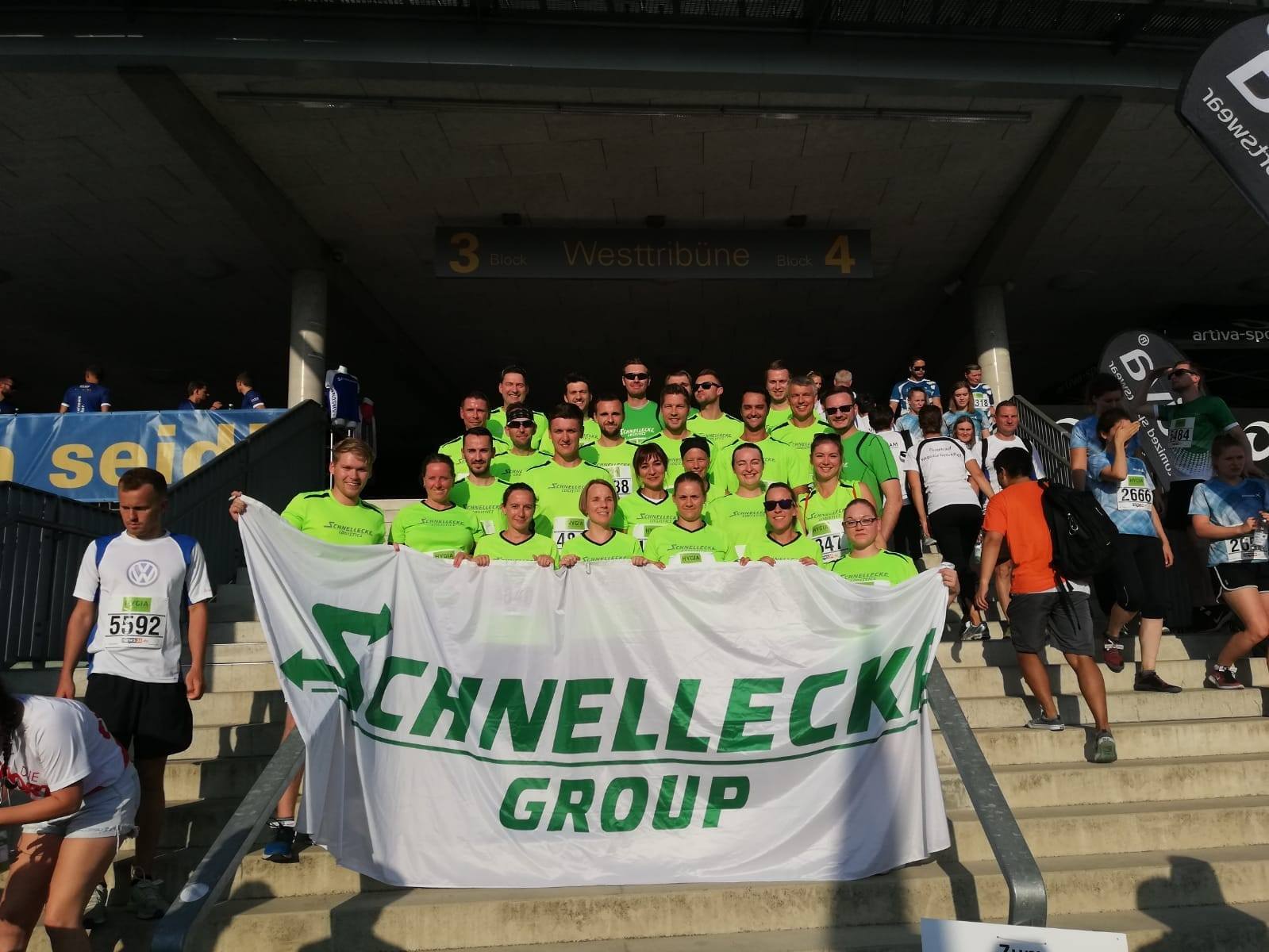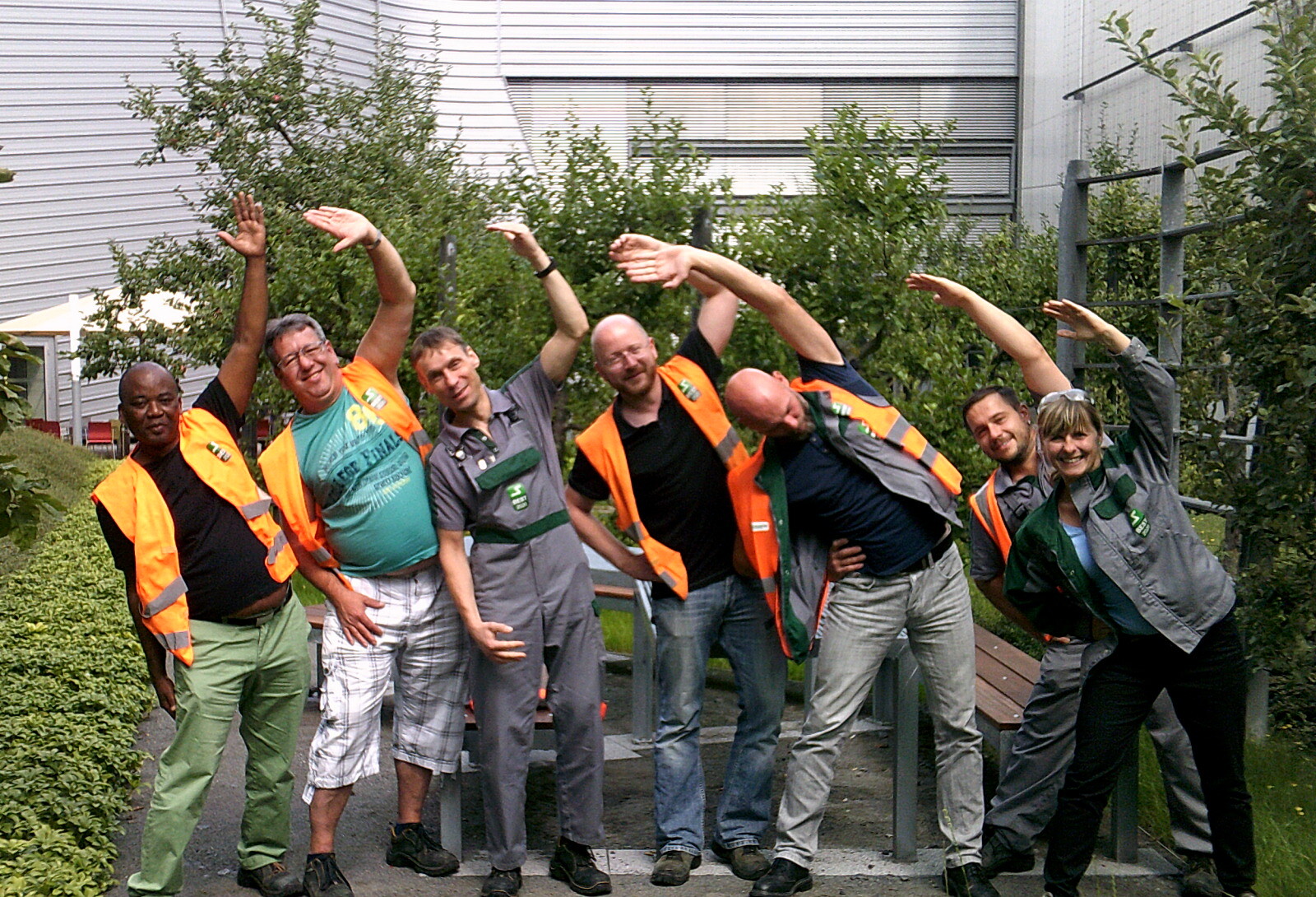In logistics, employees play an essential role. Value-adding logistics in particular, despite all the automation and digitalization, is highly personnel-intensive. Our business is inconceivable without committed and motivated people. That is why Schnellecke has always felt a special obligation towards its employees. A responsibility that we take very seriously.

Focus on occupational safety
The safety and health of our employees is a high priority for us. We continuously optimise occupational safety with a wide range of measures and offer a comprehensive health program.
Our activities are based on the internationally recognized standard ISO 45001:2018, among others.

Health management as central task at Schnellecke
Companies are facing far-reaching changes: Due to globalization and demographic change, the market and competitive conditions are changing at an increasingly rapid pace, together with intensified streamlining, a compression of the work, and its restructuring.
These developments also affect the companies and company sites of the Schnellecke Group. The age structure at the sites has already changed in this way: At some sites more than thirty percent of the employees are over fifty. However, older employees also have to be able to handle the strain of physical labor, which often also has to be done under time pressure. That is why capable, qualified, motivated and healthy employees are becoming an increasingly important resource for the success of the company in globalized competition.
This is where the Workplace Health Management (WHM) comes in, on the one hand, through measures which contribute to redesigning working conditions to be healthier. On the other hand, offers are aimed at changing the behavior of the employees. Workplace Health Management can therefore make an important contribution to sensitizing employees to behave in a health-oriented way, in connection with increased work satisfaction and commitment.
The central areas of activity are oriented on four pillars of a holistic understanding of health:
Site-specific individual actions and pilot projects, as well as Group-wide projects for the areas of
are offered. Furthermore, there are offers for special target groups such as apprentices and truck drivers.
We document the results of our efforts annually in a Sustainability Report. Read more.
Inclusion at Schnellecke
Together with the representative for severely disabled employees, our Inclusion Officer represents the interests of severely disabled employees in the company. They work in unison to ensure that the employer's obligations under the German Social Code (SGB IX) are implemented in the company in order to enable or improve the participation of severely disabled people in working life. In addition, the Inclusion Officer is the liaison officer for the Integration Office and the Federal Employment Agency.
Collective bargaining regulations
Collective bargaining agreements do not exist in every country in which Schnellecke is active due to the different national regulations. In the following countries, however, collective bargaining agreements have been (partially) concluded with individual companies of the Schnellecke Group:
There are a total of 149 collective bargaining agreements in these countries. 14,637 employees out of a total of 19,307 employees worldwide (= 75.81%) are bound by collective bargaining agreements.